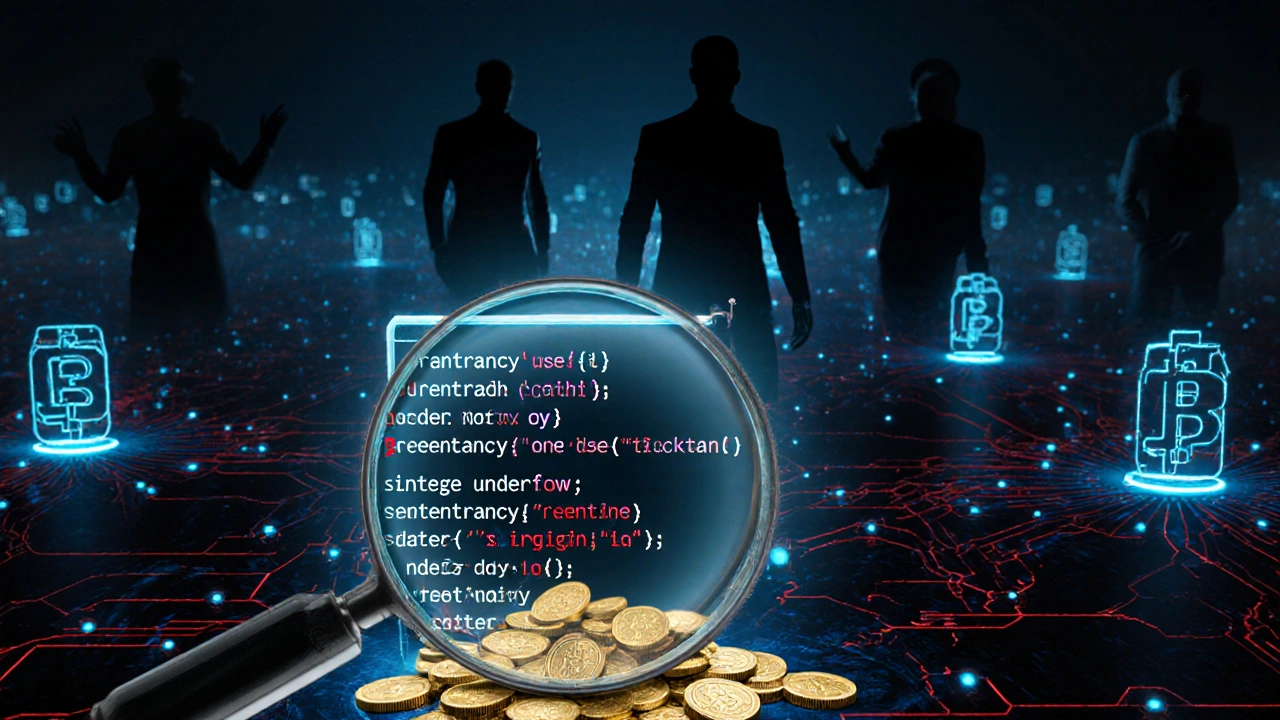DeFi Security Audit: What You Need to Know to Stay Safe
When you put money into DeFi security audit, a systematic review of decentralized finance protocols to find vulnerabilities before they’re exploited. Also known as smart contract audit, it’s the digital equivalent of checking the foundation of a house before you move in. Without it, you’re trusting code written by strangers—code that can vanish overnight if a single line has a flaw.
DeFi security audits don’t just look for obvious bugs. They test how protocols react under pressure: What happens if someone tries to drain funds? Can a user manipulate interest rates? Are the reward formulas mathematically sound? Top audits also check for smart contract audit, the process of examining blockchain-based code for logic errors, reentrancy risks, and unauthorized access points flaws that automated tools miss. Real audits include manual review by experienced engineers—not just a tool scan. Projects like Aave and Compound didn’t become trusted because they were popular; they became trusted because they published full audit reports from firms like CertiK and OpenZeppelin.
But here’s the catch: Not every project gets audited. Some fake reports. Others hire cheap auditors who rush through the job. That’s why you need to check the auditor’s reputation, not just the logo on the website. A blockchain security, the practice of protecting decentralized networks, wallets, and protocols from theft, fraud, and system failures expert will tell you that the best audits are public, detailed, and updated after code changes. If a project says "audited" but won’t show you the full report, walk away. And if the report says "low risk" but doesn’t explain what was found—or worse, lists no findings at all—that’s a red flag.
Most people think DeFi is about high returns. But the real game is about staying safe while you chase them. A good audit doesn’t guarantee success—but a bad or missing one guarantees risk. That’s why the most successful investors don’t just look at APYs. They look at audit reports, auditor names, and whether the team responds to findings publicly. The difference between losing your money and keeping it often comes down to one thing: Did someone check the code before you did?
Below, you’ll find real-world examples of how DeFi security audits have prevented disasters, what to look for in a report, and which projects in India’s growing crypto scene are actually doing this right. No fluff. No hype. Just what you need to protect your investments.
Security Audits for DeFi Protocols: What to Look For
DeFi security audits aren't optional - they're essential. Learn what real audits check for, why one isn't enough, how to read reports, and what red flags mean danger.
DENNIS HIGHFILL | Nov, 18 2025 Read More
